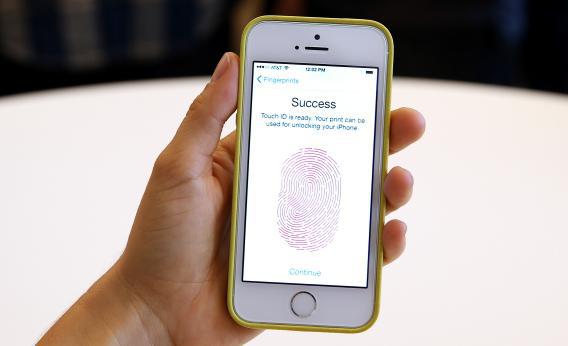Critics have complained that the cheap new iPhone isn’t cheap enough, and that the fancy new iPhone isn’t fancy enough, and that in general the products are not new or exciting enough to reverse a decline in Apple’s share of the smartphone market. These are all fair criticisms worthy of debate.
And then there’s this one, from the Huffington Post: “iPhone 5S Thieves Could Chop Off Fingers To Hack Fingerprint Scanner, Says Expert.” Here’s the lede:
Excited by the fingerprint scanner on the new iPhone? Well not to panic you, but one security has warned that whether or not the device can be hacked, owners of devices definitely can be.
Thieves have mutilated victims to gain access to phones equipped with a fingerprint reader, an expert has warned. By chopping off their fingers.
It’s hard to tell to what extent the blame for this absurd meme should fall on the expert in question, a security researcher named Marc Rogers, or the journalist responsible for the post (it’s unbylined). I’m tempted to give Rogers the benefit of the doubt, given that his actual quote was that thieves could mutilate victims “in extreme cases.” He also notes that fingerprint sensors can be a convenient way to increase security. Then again, the Huffington Post is not the only publication to snatch Rogers’ finger-chopping claim and run with it. I’ve reached out to Rogers to see whether he stands by his finger-chopping quote or feels he was taken out of context, and will update if he replies.
Is it possible that some deranged nut might chop off your fingers in order to gain access to your iPhone? Sure—especially if you’re a character in a B-grade Hollywood spy thriller. It’s also possible that he might chop off your arm to steal your purse, chop off your legs to steal your Nikes, or chop off your head in order to grab your necklace. But if he already has you detained and defenseless in such a private and opportune spot that he has time to perform an impromptu surgery, wouldn’t the prudent thief simply compel you to touch the “home” button with your finger while it’s still attached to the rest of you? Or, I don’t know, ask you your PIN code? (Since fingerprint sensors are imperfect, it’s almost certain that Apple will give 5S owners the option of unlocking by PIN in the event that the scan isn’t working.)
Suffice it to say that the likelihood of becoming an unwilling donor of digits should not be among your top concerns when deciding whether to buy the new iPhone.
In fact, while the fingerprint sensor doesn’t technically make your phone any more secure—remember, you’ll still be able to unlock it with a PIN just like before—it’s likely to make securing and unlocking your phone far more convenient. Which means, in turn, that a lot of people who go around with their phones unlocked today will probably no longer do so if they buy the iPhone 5S, reducing thieves’ chances of stealing an unprotected one. Take that to its logical conclusion, and you’re likely to end up with fewer violent iPhone robberies, not more. Who knows, maybe the 5S’ fingerprint sensor will even help stem that global Apple crime wave.
Update, Thursday, Sept. 12, 12:52 a.m.: Rogers, the security expert whose quote was the basis for those sensational stories in the Huffington Post UK, the Independent, and elsewhere, told me he meant the finger-chopping remark as an example of an extreme scenario, rather than as a warning of something that could realistically happen. He’s only aware of two instances of people having their fingers chopped off by thieves in order to fool fingerprint sensors, and those involved car thieves in Malaysia. “I don’t think that kind of attack is likely to happen to people for thier mobile phones at all,” Rogers said. On the contrary, he said he thinks Apple’s fingerprint sensor could propel the technology into the mainstream, if implemented well. “The more I’m hearing about Apple’s solution,” he added, “the more I’m actually liking it.”
